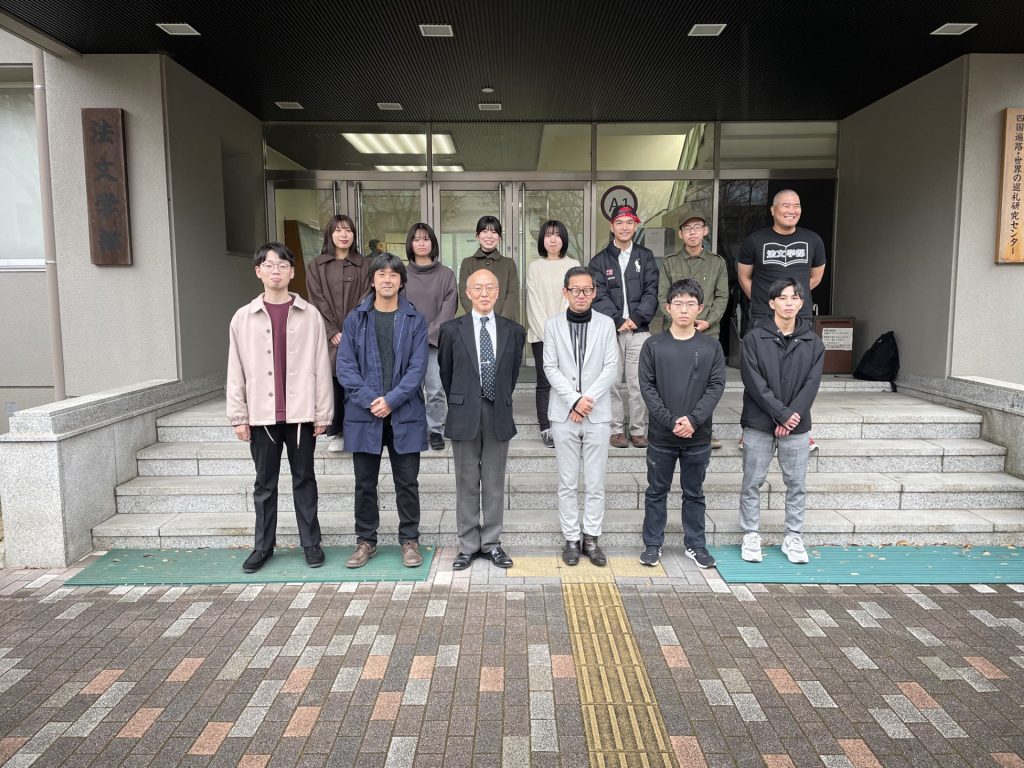To the root of the question of existence
※The content is current at the time of writing.
Interpretation of contemporary issues based on the question of existence
Research Overview
Since my undergraduate and graduate days, I have been involved in the study of the thought of the modern German philosopher Martin Heidegger (1889-1976). Heidegger is best known for his main work, “Being and Time (Sein und Zeit, 1927),” which I have read many times to trace and interpret the rich thought surrounding the “question of the meaning of being,” and to use it as a guide to weaving my own thought.
He has also been interested in phenomenology, founded by Edmund Husserl, Heidegger’s teacher, and hermeneutics, which Heidegger adopted as the methodology for Being and Time. From such perspectives, I have attempted to reconsider Heidegger’s thought centered on Being and Time from various perspectives, while also taking into consideration themes such as the foundation of science as a modern discipline and the philosophical interpretation of language and history.
Research Features
However, partly because the second half of Being and Time itself was not published as announced, and partly because Sartre defined Heidegger as an “atheistic existentialist,” the general reception in Japan was that of an existentialist book about our own existence, which Heidegger called Dasein (Being). The general reception of Heidegger’s work in Japan was that it was read as an existentialist book about our own existential existence, which Heidegger called “Dasein,” or that it was not read as such because of its value. Indeed, one of the main themes of the book, entitled “An Existential Analysis of Being,” includes a discussion of the non-essential being called “das Man” in everyday life, and of the loss of self to such a being, leading to an inherent existence through a pioneering readiness for death triggered by anxiety. This discussion is extremely interesting in itself. This argument itself is extremely interesting, and I often bring it up in my own teaching. However, this is by no means the end of the contents of Being and Time. Heidegger’s fundamental question in this book is the “question of the meaning of existence” mentioned above. The main purpose of “Being and Time” is to reopen the question of “the question of being,” which has been known as a question to be asked since the beginning of philosophy as Aichi in ancient Greece, but has been neglected to find the answer, or even to formulate the question clearly. The existential analysis of being is also called “die Fundamentalontologie” because it is the premise for the fundamental question of being.
Therefore, my research themes are (1) to correctly locate the question of existence presented in Being and Time in the history of Western philosophy, (2) to trace how the question of existence is transformed in the development of Heidegger’s so-called “middle and late period” of thought after Being and Time, and (3) based on this, (1) how Heidegger’s question of existence has lost its significance for us who are said to have lost ourselves in the modern “system of total support” of the age of science and technology. Based on this, (3) what significance does Heidegger’s question of existence have for those of us who are said to have lost our self in the “total system” of today’s age of science and technology?
Research Attraction
Philosophical books are often filled with difficult terminology and are often written in a style that is not used in everyday life, so they may be perceived as representative of something difficult to understand. If texts woven in such inaccessible language and style were truly incoherent, the fate of philosophy would have been sealed long ago.
However, what is not the case is that there are consistent principles contained in the difficult and complicated text, and when you are able to decipher the ideas contained in the text by unraveling these difficult words one by one and reconstructing them by connecting them together, you may experience that the text, which until then seemed like a scenery that had been closed in by a deep fog, clears the fog and emerges as a vivid landscape. When you are able to decipher the ideas contained in the text by deciphering such difficult phrases and combining and reconstructing them, you may experience the text as if it had been shrouded in a deep fog, and the fog lifts to reveal a clear and vivid landscape. It is a feeling similar to that of discovering the culprit after reading a good mystery novel. Philosophical books are, in fact, a source of such pleasure and intellectual delight.
Future Outlook
The papers I have presented in recent years are as follows, each of which, as their titles suggest, is rooted in Heidegger’s thought and aims to grasp the points of contact between Heidegger’s thought and the problems of technology and politics in the contemporary world, and to critically excavate such problems. In particular, the oral presentation in 2022, which was the basis of Paper 1, was an attempt to reconsider Heidegger’s ideas on the nature of “supra-politics,” which became popular with the publication of the so-called “Notebooks in Black,” from the perspective of Romanticism, The Heidegger Forum Jiro Watanabe Award was given to the most outstanding oral presentation of the year. We plan to continue to pursue this issue and investigate the roots of Heidegger’s thought on existence in various issues related to science, technology, and politics in our time.
1. is heidegger a romanticist?
Heidegger-Forum, Vol. 17 (2023)
2. hermeneutics of nature and technology – with Heidegger’s “Introduction to Metaphysics” as a clue
Ehime University, Faculty of Law and Letters, The Review of Humanities, No. 55 (2023)
3. on the appropriation of nature in Heidegger’s thought
Ehime University, Faculty of Law and Letters, The Review of Humanities, No. 52 (2022)
4. on F. G. Junger’s involvement in Heidegger’s critique of technology
Ehime University, Faculty of Law and Letters, The Review of Humanities, No. 50 (2021)
5. the crisis of various disciplines and phenomenology: with Husserl and Heidegger’s thought as a guide
Ehime University, Faculty of Law and Letters, The Review of Humanities, No. 48 (2020)
6. Human Existence in Heidegger’s Theory of Technology: Intersection with E. Junger’s Thought
Journal of Ethics, No. 49 (2019)
As part of his other research activities, he served on the editorial board of “Heidegger Encyclopedia” (edited by Heidegger Forum, Showado, 2021), a multifaceted and multifaceted commentary and discussion of the inner workings of Heidegger’s thought, and was both editor and author of the book.
In addition, a translation and solution of M. Heidegger’s “To Ernst Junger” (in The Complete Works of M. Heidegger, Vol. 90) has been published in “General Special Issue on Heidegger : Black Notes, Being, Time, and the Question of Technology” (Contemporary Thought, 46(3), 2018). A translation of the entire volume 90 of Heidegger’s Complete Works, “To Ernst Junger,” is also currently in preparation.
Message to those who are interested in this research
When you first come into contact with “philosophy” in university classes such as “Introduction to Philosophy” and “Thinking about Ethics and Philosophy,” and through these classes you begin to rethink and reconsider the nature of the world from the past to the present and your own life within that world, you begin to see the world and yourself in a different way. This experience is probably the result of studies that were conducted up to high school. This experience may not have been available to you until high school. We hope that you will enter a university and try to experience philosophy, and discover a world and a way of being that you had not seen before. If you find this interesting and fascinating, we hope that you will knock on the door of the Philosophy Laboratory to study philosophy professionally.






